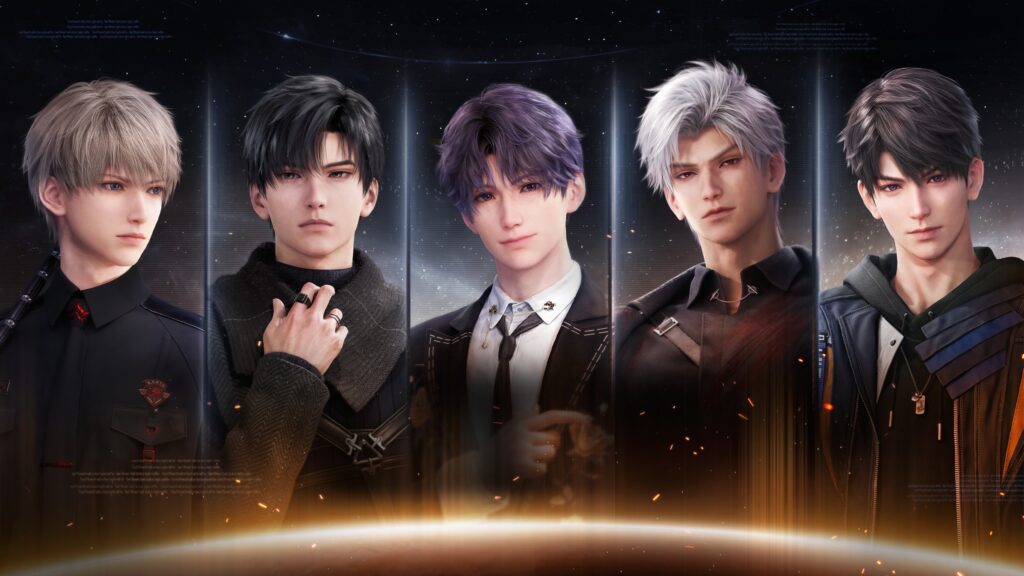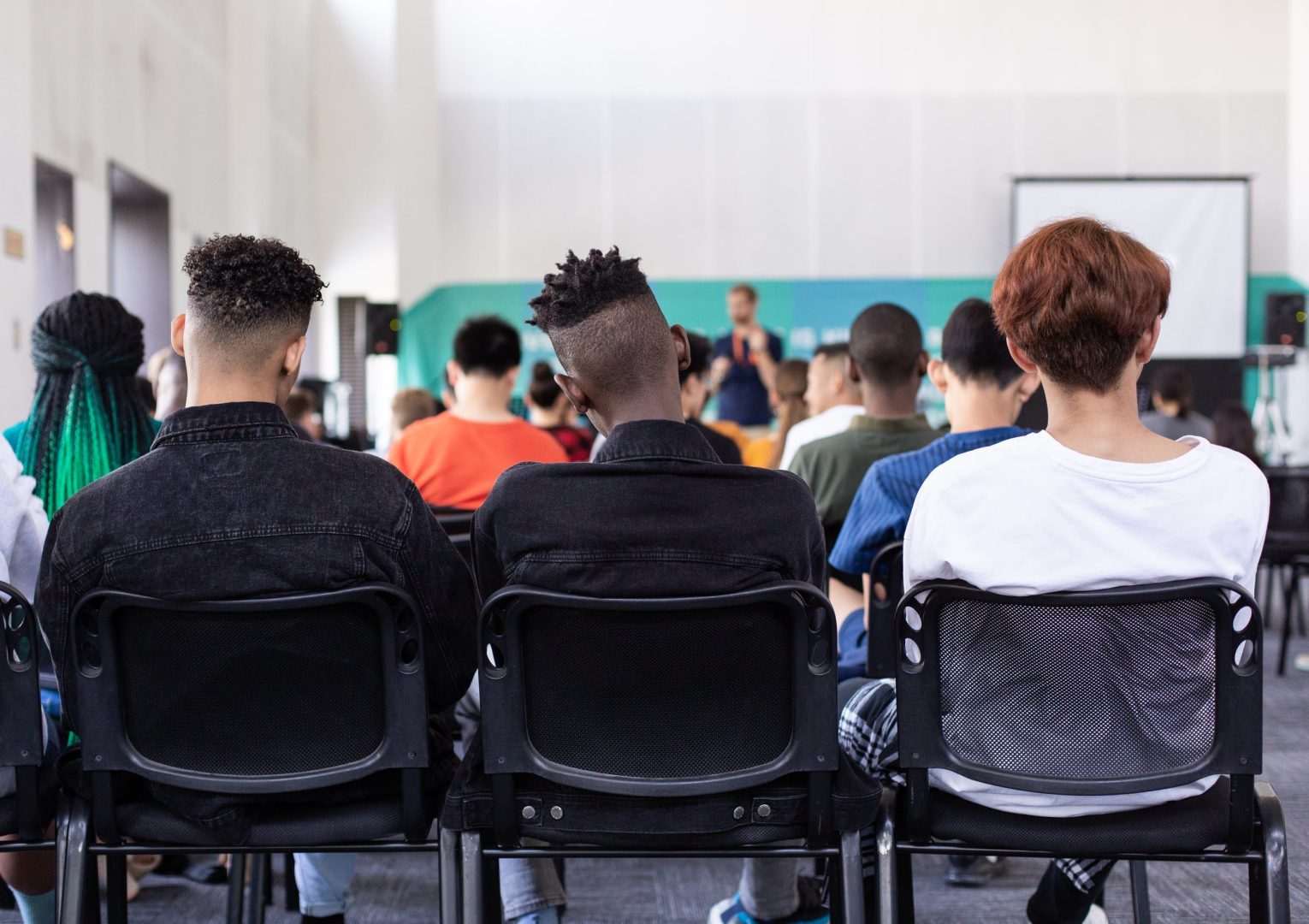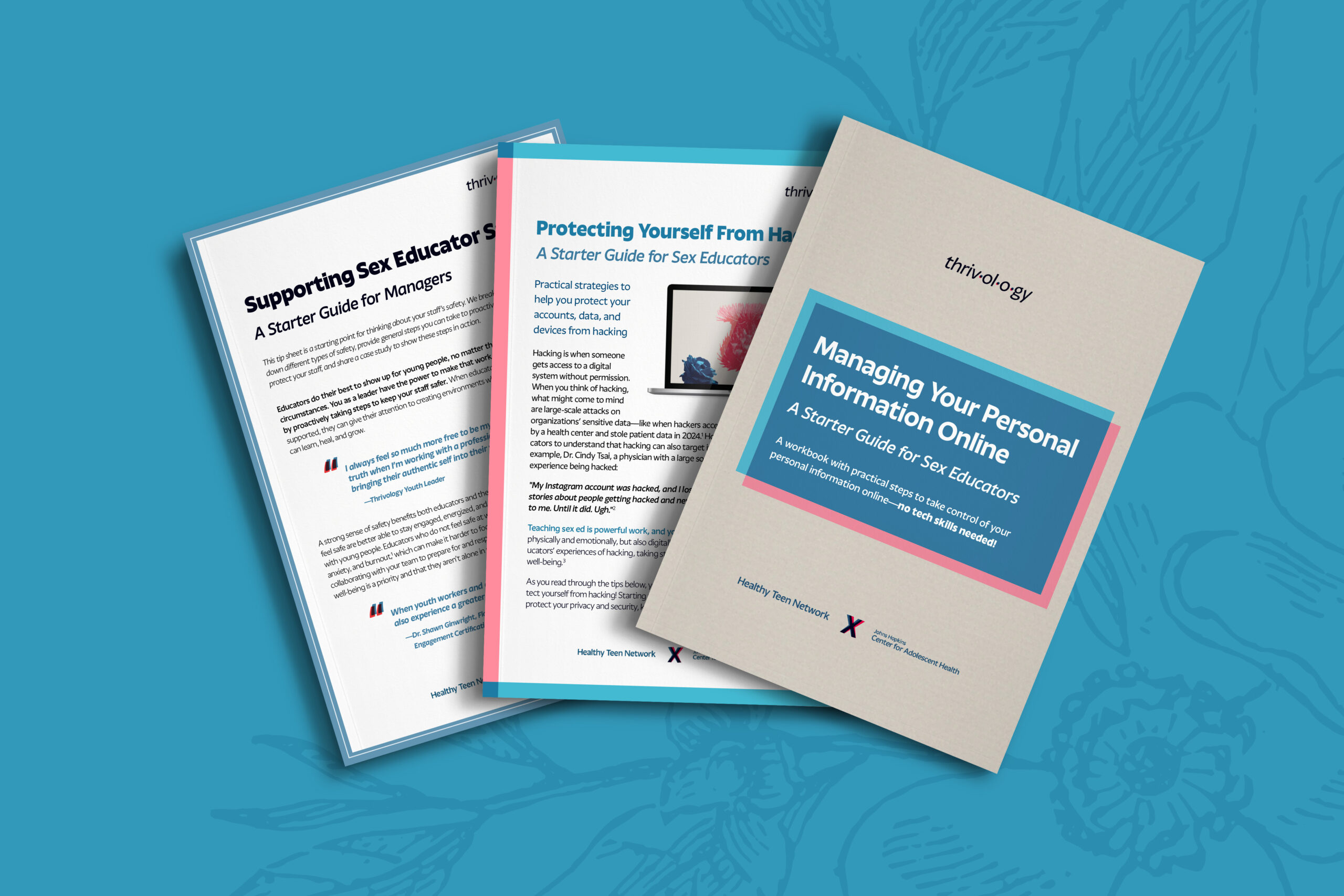If you know me, you know I could talk for hours about gaming. From late-night dungeon raids to cute indie romance sims, games have always been more than just entertainment for me—they’re spaces for connection, self-discovery, and, often, reflection. That might sound dramatic, but if you’re someone who’s grown up online (hello, fellow millennials) or found pieces of yourself through digital storytelling, you get it. Working at Healthy Teen Network, where we center youth empowerment, sex education, and healthy relationships, I can’t help but notice the ways those same themes show up in the gaming world, especially when it comes to consent.
Last year, I had the opportunity to take part in several roundtables at the Game Developers Conference (GDC), including the “Educators Summit: Teaching Games with Games,” “Creating Safer Digital Playgrounds Roundtable,” and the very fun, spicy, and illuminating “Melting Hearts and Quenching Thirst Roundtable: Sex in Games.” And over the past year, it got me thinking about gaming and consent.
Gaming and consent might not seem like an obvious pair, but media is one of the first places many young people get messages about relationships, intimacy, and boundaries.
Gaming and consent might not seem like an obvious pair, but media is one of the first places many young people get messages about relationships, intimacy, and boundaries. If we’re serious about helping young people navigate those things in real life, then we have to pay attention to the media they’re consuming. One phrase I’ve heard a lot since joining the field of adolescent sexual and reproductive health is to “meet young people where they’re at,” and gaming is a huge part of that, especially for groups that have historically been pushed to the margins in gaming spaces, like women and queer folks.
So, let’s talk about what happens when games get it right.

Love and Deepspace: The “Green Flag” Era
One of the more recent mobile games I’ve spent a decent number of hours (and money…) on is Love and Deepspace, a sci-fi romance sim where you’re a space agent who gets tangled up with a handful of mysterious (and beautiful) men. It’s aimed at a largely femme audience, and while the storylines are full of the usual drama and angst, what really stood out to me was how consent is baked into the interactions—especially with Sylus.
Sylus, for those who don’t play, is basically the mafia-boss, dark romance archetype (who also happens to be a dragon?!). But unlike the usual “emotionally unavailable but secretly into you” trope, Sylus is actually a walking green flag. He checks in. He asks how you’re feeling. He lets you lead. He respects when you pull back. There’s this moment where you’re in a vulnerable situation together, and the game could’ve gone down a trope-heavy path of “well, one thing led to another…” but it doesn’t. Instead, Sylus literally pauses to ask if you’re okay. And not in a “weird break in the immersion” way, but in a way that feels natural, intimate, and, frankly, kind of healing.
And what’s even cooler? The fanbase notices and is invested—Love and Deepspace is literally the top-grossing mobile game out there right now. And Sylus is often praised as a “green forest” (basically a walking forest of green flags), and that discourse and support matters. Because it shows that people are craving examples of soft, safe, respectful intimacy, especially in genres that often get messy with power dynamics and blurred boundaries.

Dream Daddy: The Power of a Simple “No”
Then there’s Dream Daddy, which I still think is one of the most quietly revolutionary dating sims out there, even though it was released back in 2017. You play as a dad, navigating the world of single fatherhood and dating other dads in your neighborhood. It’s adorable, queer, and full of soft humor through plenty of dad jokes and real emotions. But one of the most important things it does? It normalizes enthusiastic consent.
Within the first 30-45 minutes of gameplay, depending on your choices, you can find yourself in a more intimate situation after a night out at the bar. But at any point, if you choose “no,” the game doesn’t punish you. The other dad opposite you backs off, no questions asked. There’s no guilt trip. No lost “romance” points. Just a respectful end to that moment.
That might seem like a small thing, but for players who rarely see themselves represented, especially queer youth or anyone still figuring out what their boundaries are, this is huge. It sends a clear message: your choices matter. You are in control. And intimacy should always come with mutual agreement.
Why This Matters
At Healthy Teen Network, we talk a lot about consent, communication, and healthy relationships. But talking about it in abstract terms can only go so far. Young people are learning through what they see, what they play, what they share with their friends. When media reflects real, respectful examples of asking for and receiving consent, it reinforces what we’re teaching. And when it doesn’t, when games ignore boundaries, reward coercion, or blur lines in the name of drama or “edginess”—that sends a message too.
Representation isn’t just about who gets to be the hero. It’s also about what kinds of relationships we normalize.
Representation isn’t just about who gets to be the hero. It’s also about what kinds of relationships we normalize. For women and queer folks especially, so much of our media history has been about surviving toxic dynamics or settling for crumbs. Seeing love interests who pause, ask, respect, and listen? That’s not just refreshing. It’s affirming.
Where We Go from Here
As someone who’s spent time in both the gaming industry and the world of youth advocacy, I think we’re at a really exciting intersection. Indie games, mobile sims, and even some mainstream role-playing games (Baldur’s Gate 3, anyone?) are beginning to take consent seriously. But there’s still so much work to do, especially in making sure these healthy representations reach broader audiences and aren’t just niche experiences.
Developers, writers, designers: If you’re building stories where relationships are central, don’t shy away from these conversations. Build them in. Show what asking looks like. Make it clear that the player’s autonomy isn’t just a mechanic, but a value.
And for players: Pay attention to what feels good, what feels off, and what feels real. Games can be a mirror, but they can also be a map. Let’s keep pushing for ones that guide us toward something better.
Because at the end of the day, consent isn’t just a checkbox. It’s care. And we all deserve that, in life and in play. 💖
PHOTO BY: IGOR KARIMOV
April “Kayuri” Lat is a Senior Manager for Innovation and Research. As project manager for the In/Tend Incubator Hub, she is dedicated to creating playful safe spaces, both online and offline, that respect young people’s autonomy to dream, fail, and learn together. If they’re not working, you can almost always find April in their studio, producing music, gaming, or crocheting. Read more about April.








